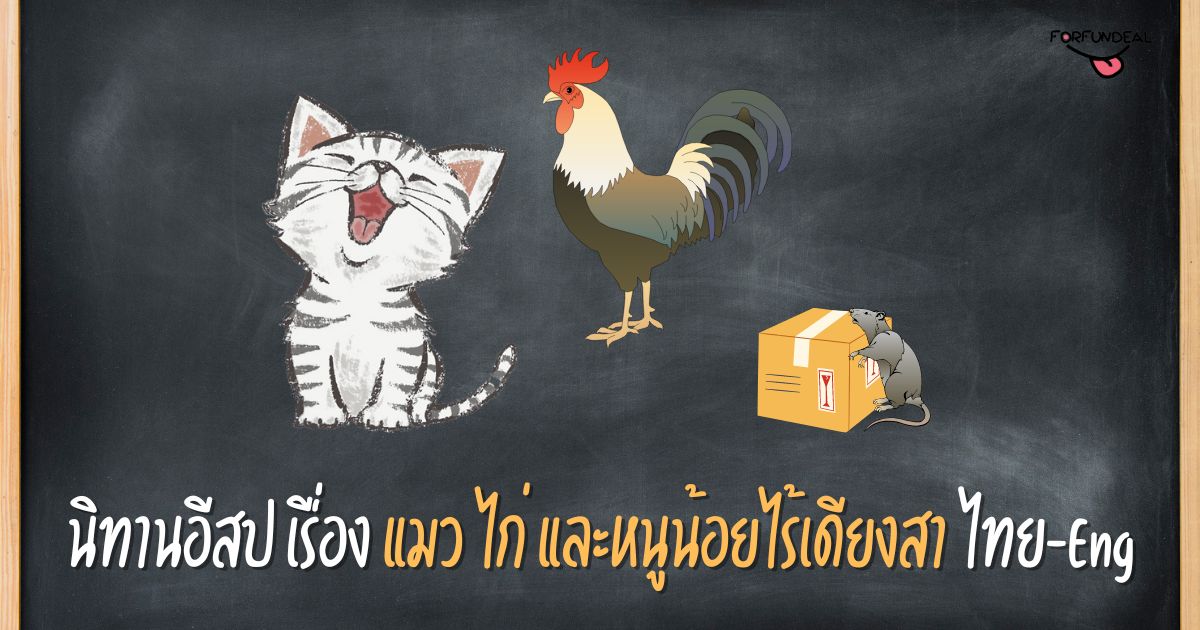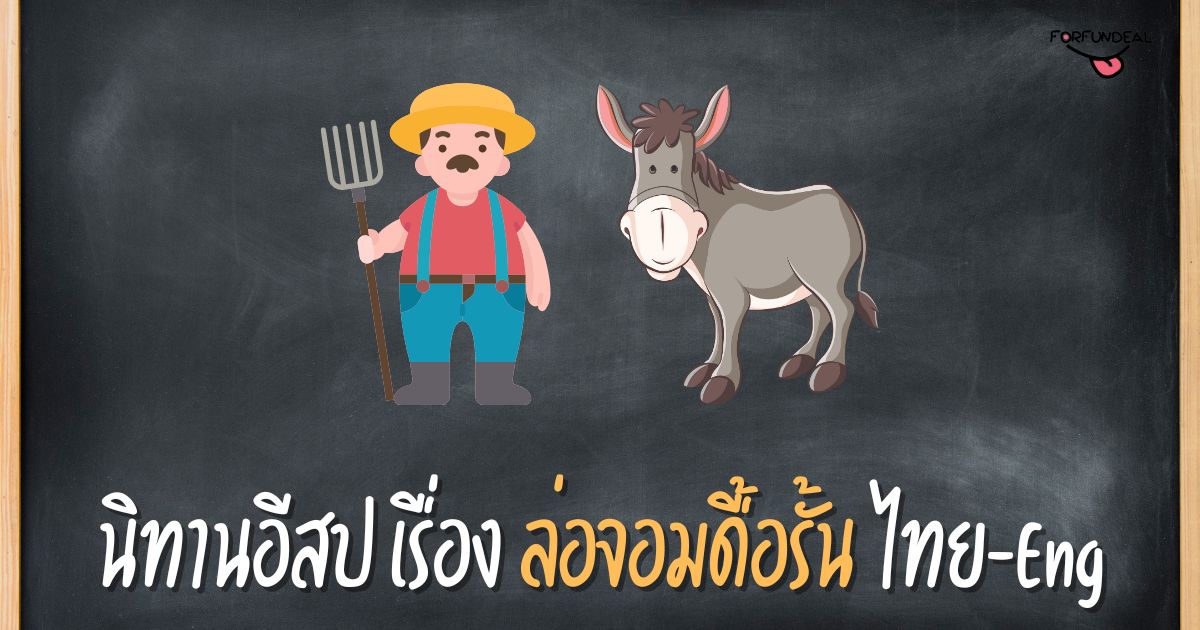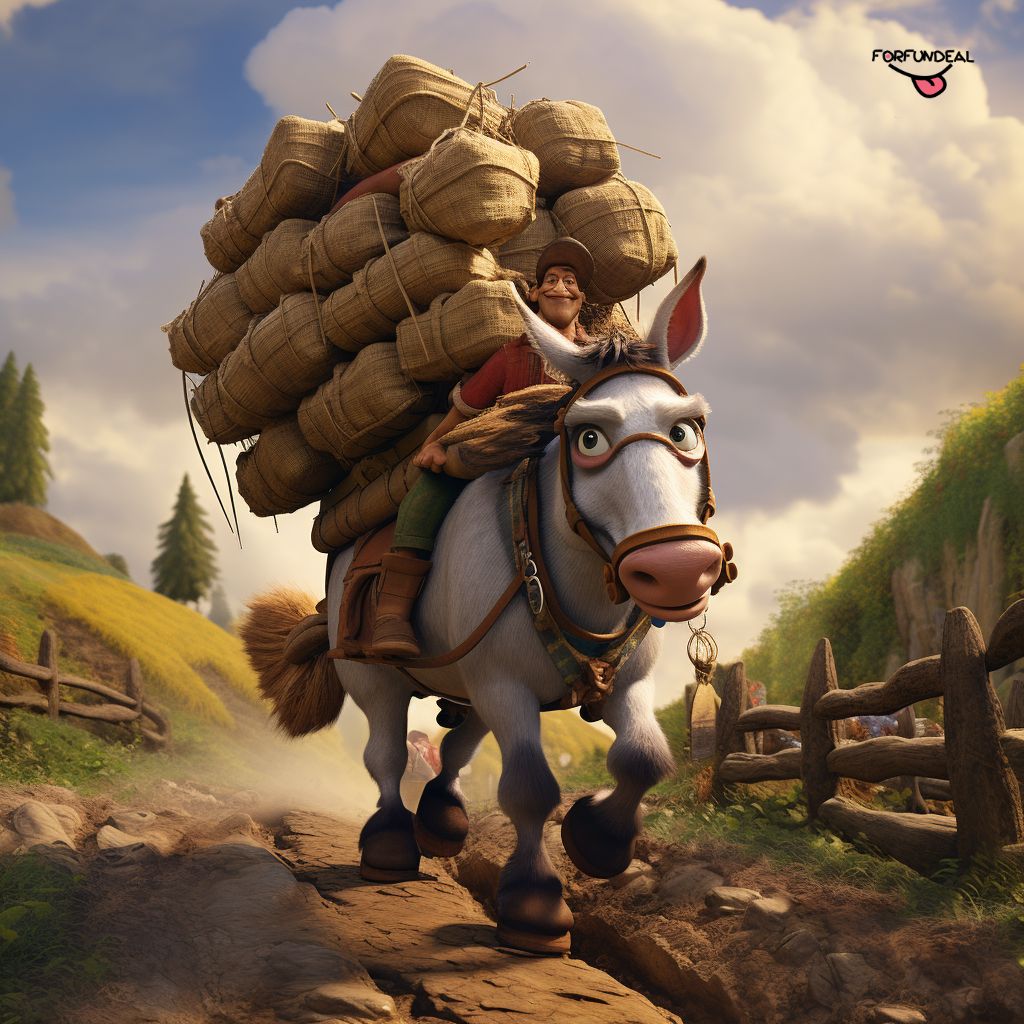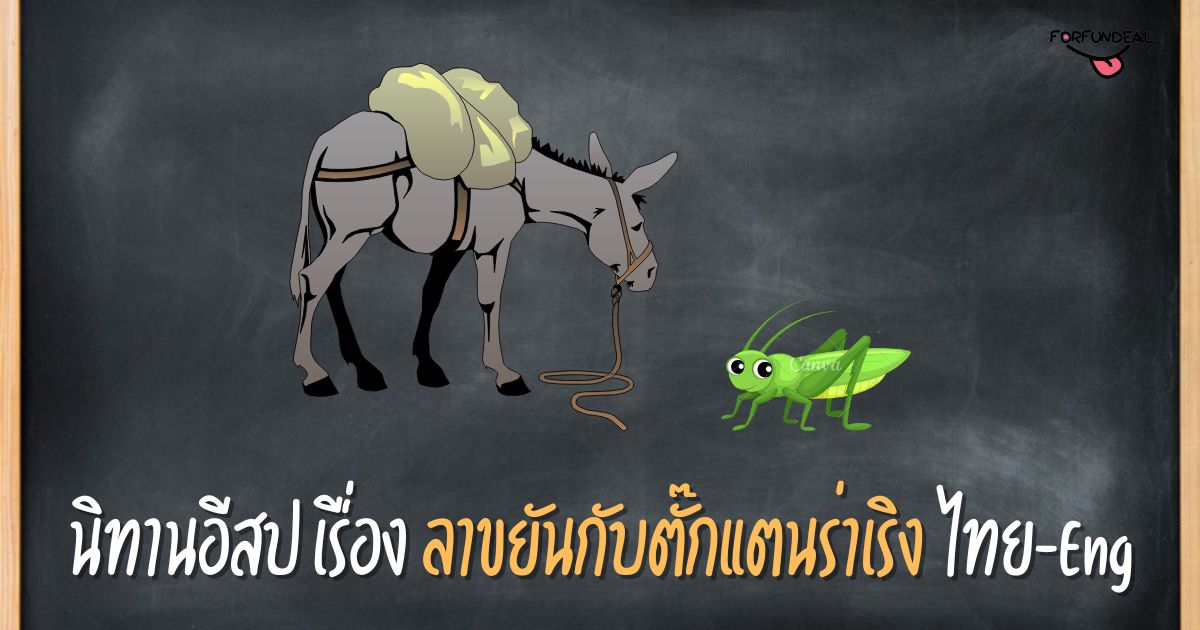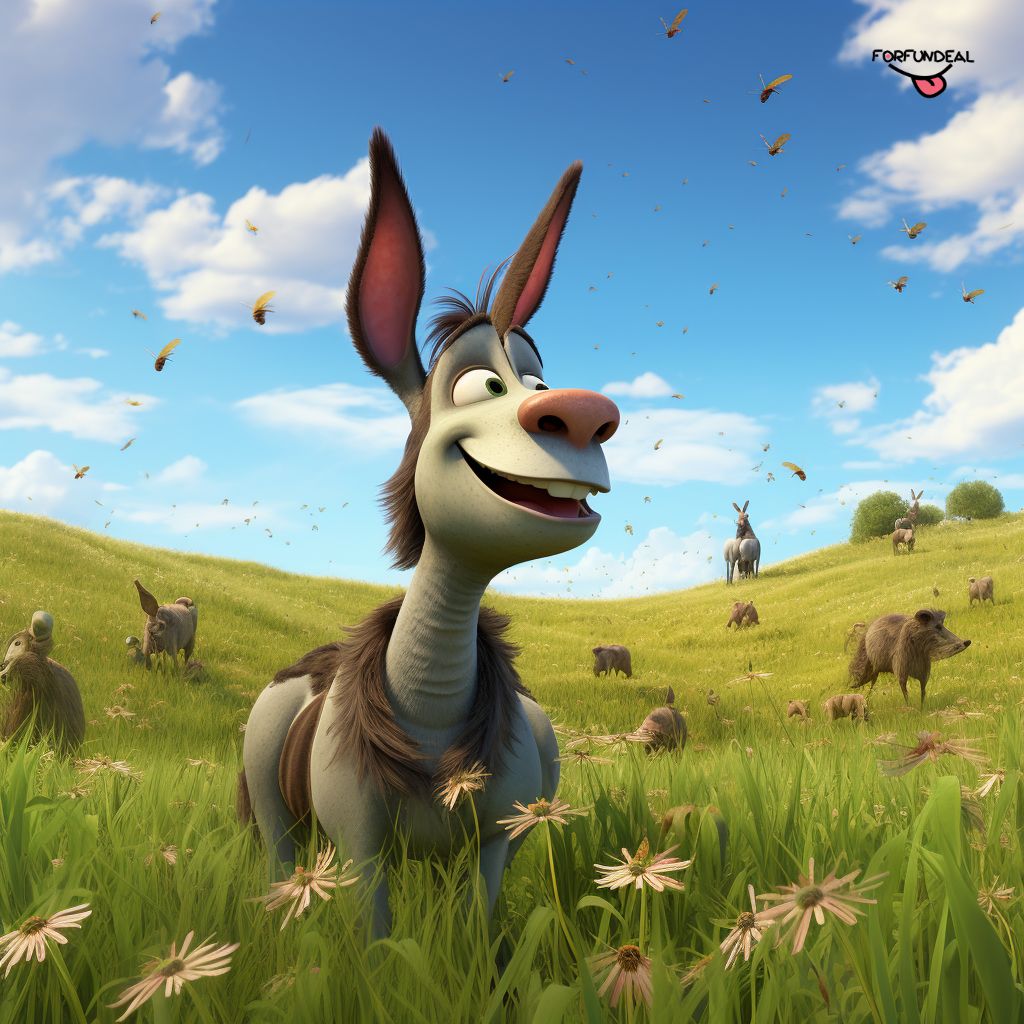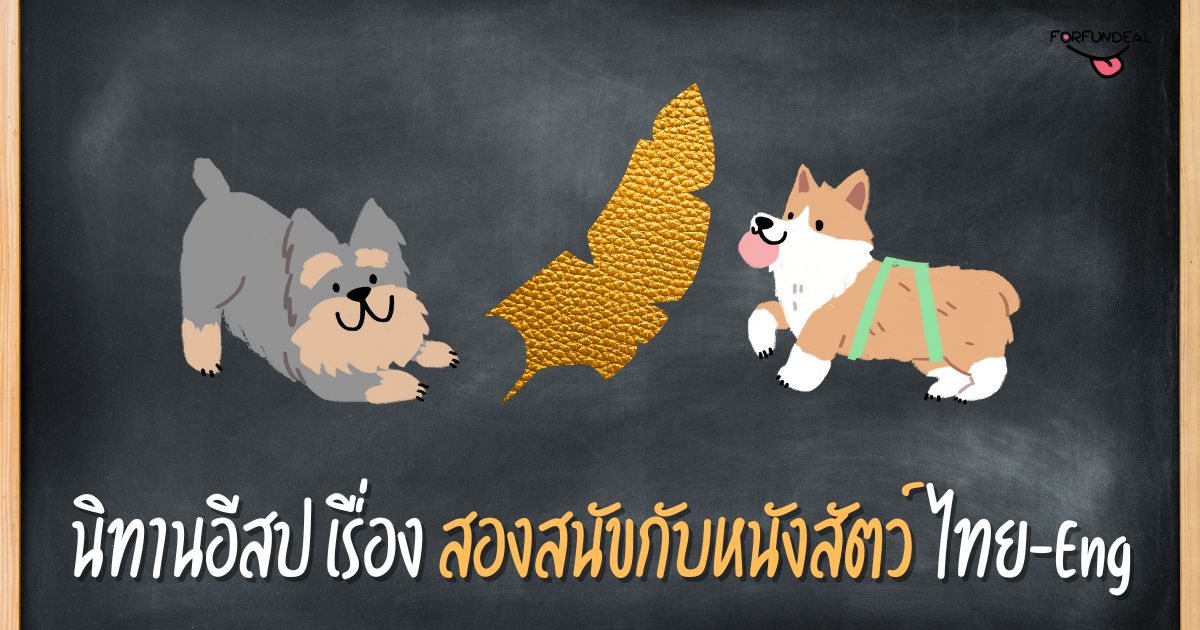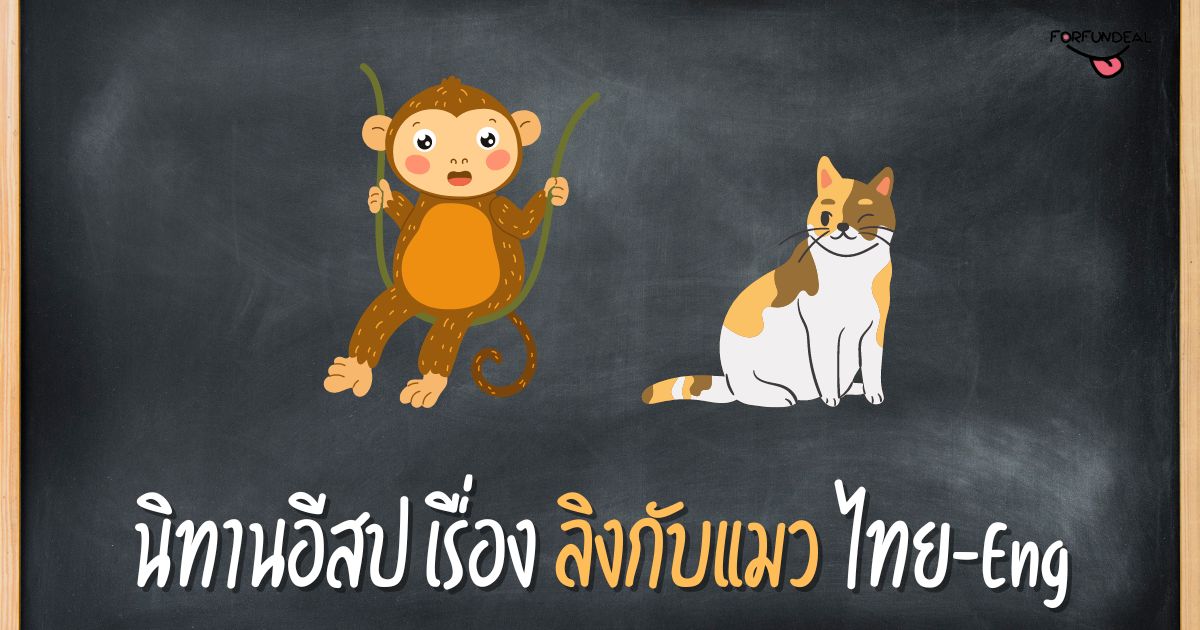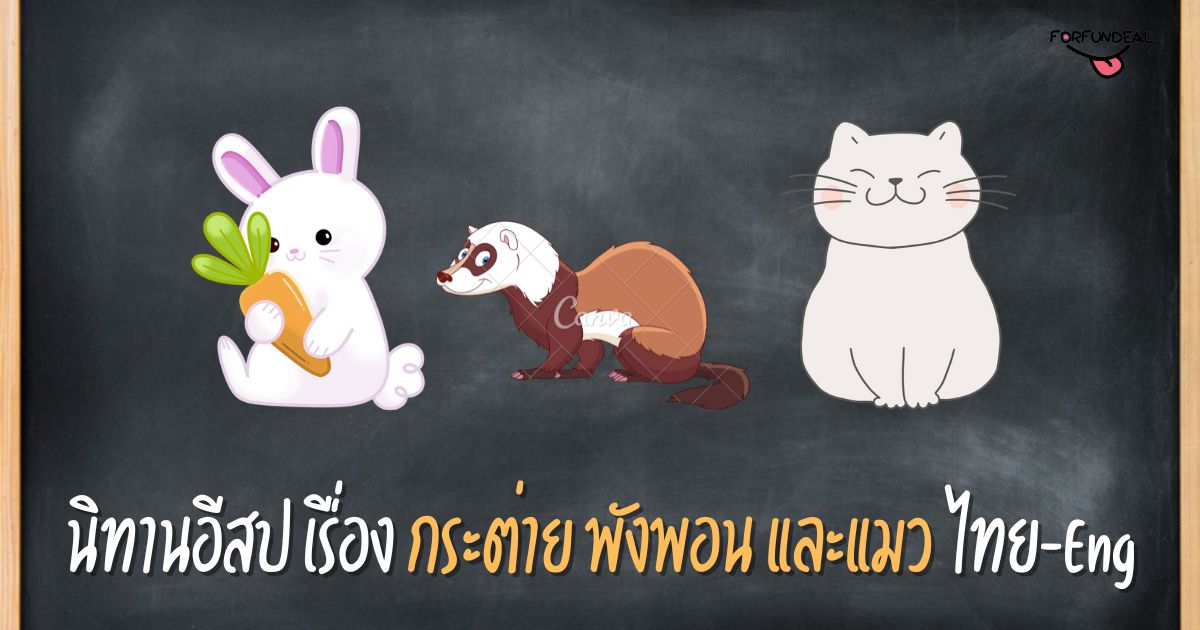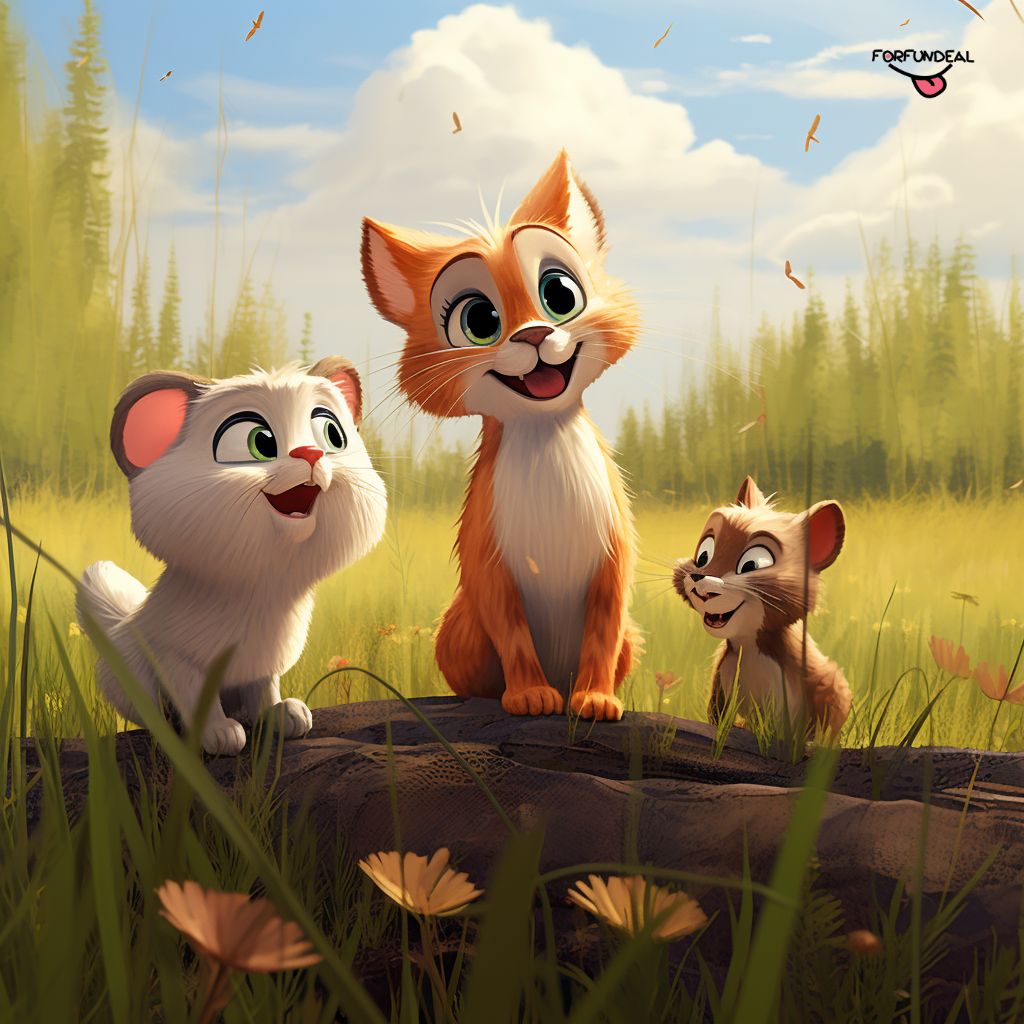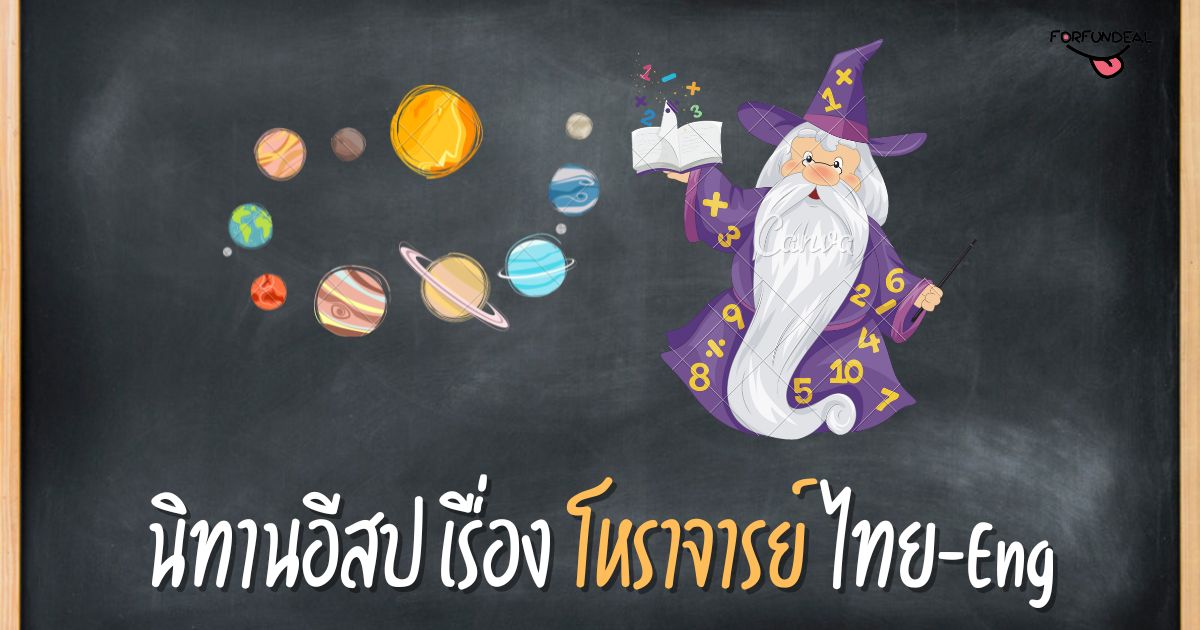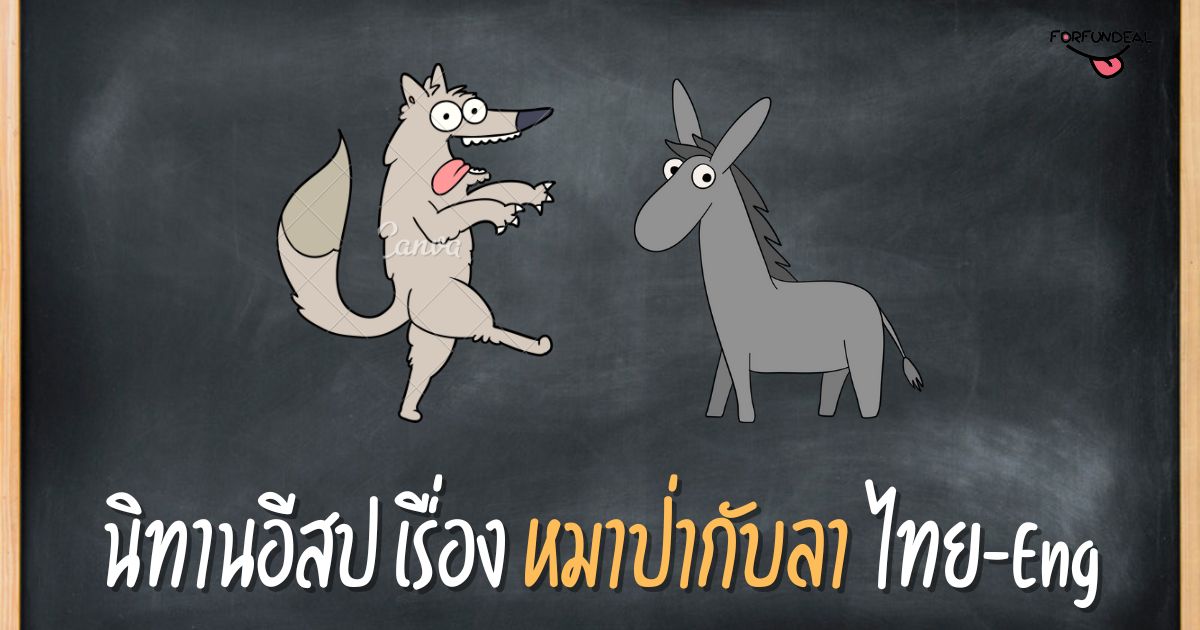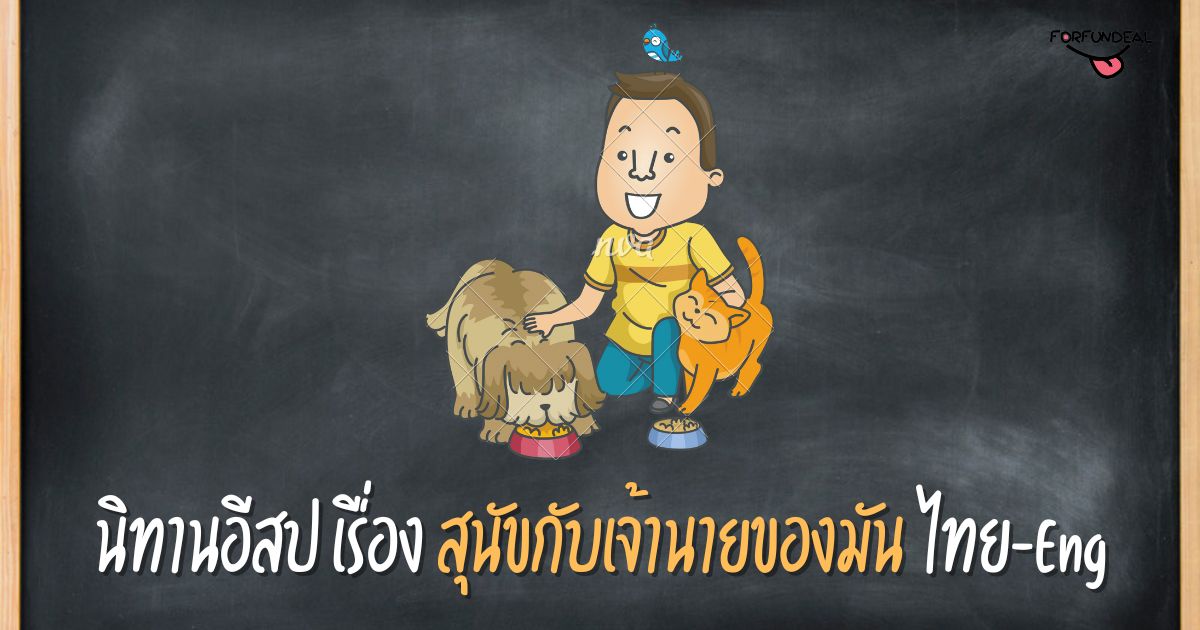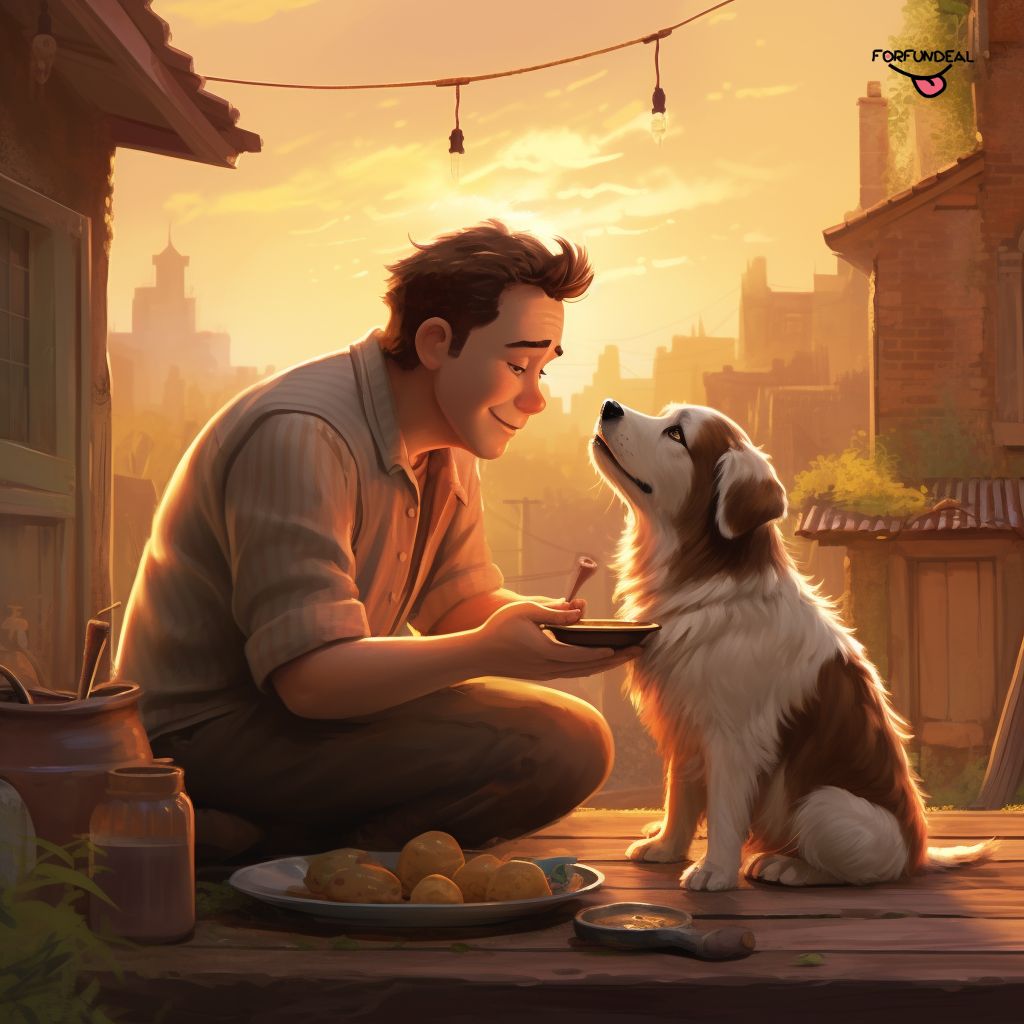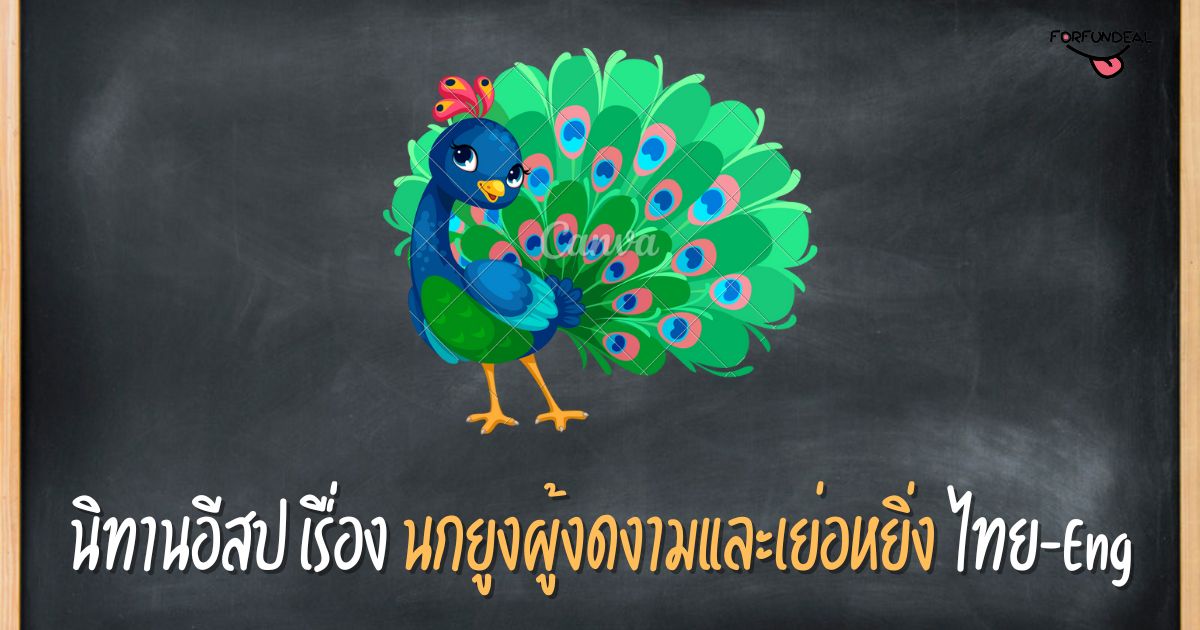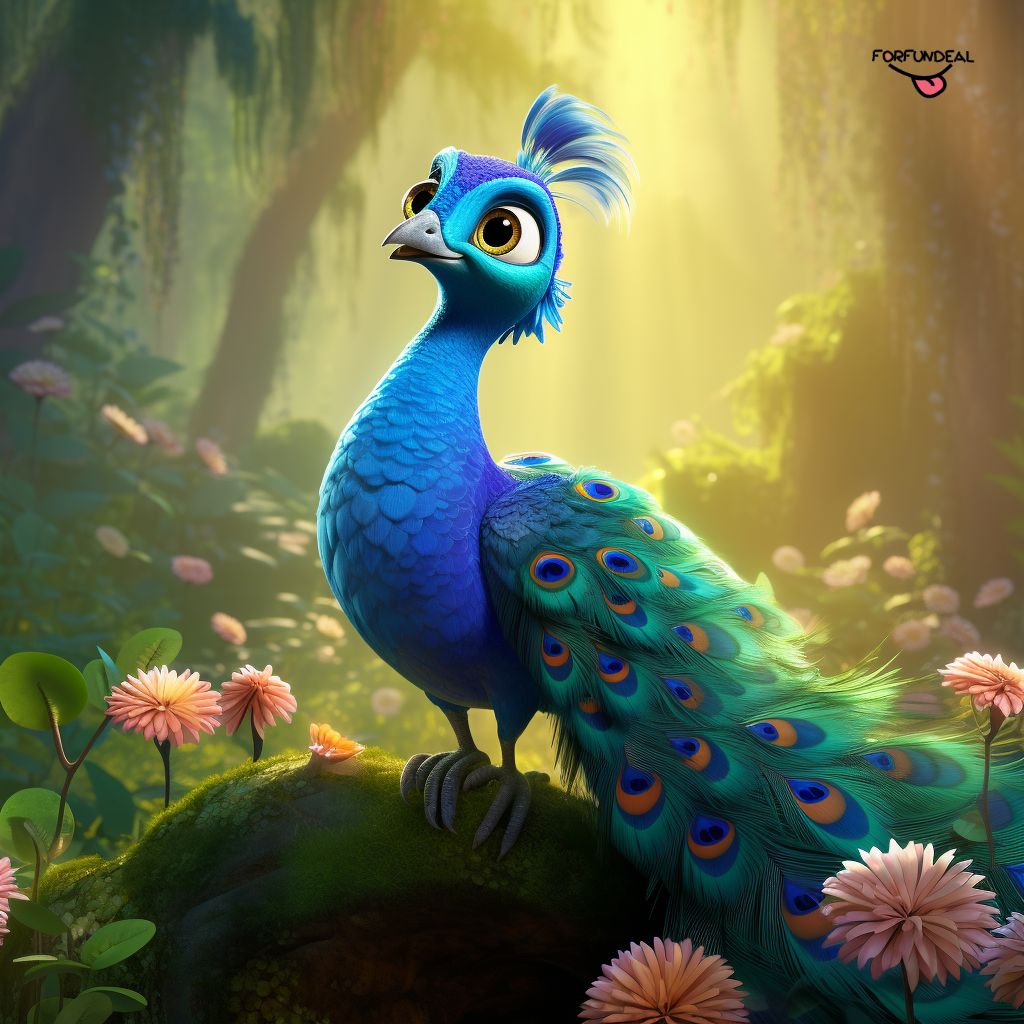“แมว ไก่ และหนูน้อยไร้เดียงสา” เป็นนิทานอีสปที่สอนเราถึงการอย่าตัดสินคนอื่นเพียงเพราะรูปลักษณ์ภายนอก บางคนดูไม่มีพิษไม่มีภัยแต่จริงๆ กลับร้าย บางคนภายนอกดูไม่ดี แต่ภายในเป็นคนดีก็ได้
นิทานอีสปเรื่องแมว ไก่ และหนูน้อยไร้เดียงสา
กาลครั้งหนึ่งนานมาแล้ว หนูตัวเล็กมากที่ไม่เคยเห็นอะไรในโลกนี้ เกือบจะเศร้าโศกในครั้งแรกที่มันได้ออกไปผจญภัย และนี่คือเรื่องราวที่มันเล่าให้แม่ฟังเกี่ยวกับการผจญภัยของมัน
A very young Mouse, who had never seen anything of the world, almost came to grief the very first time he ventured out. And this is the story he told his mother about his adventures.
“ข้ากำลังเดินเล่นอย่างสงบสุข ขณะที่ข้าเลี้ยวเข้าสนามถัดไป ฉันเห็นสัตว์ประหลาดสองตัว ตัวหนึ่งมีท่าทางใจดีและสง่างามมาก แต่อีกตัวเป็นสัตว์ประหลาดที่น่ากลัวที่สุดเท่าที่คุณจะจินตนาการได้ แม่น่าจะได้เห็นมัน”
“I was strolling along very peaceably when, just as I turned the corner into the next yard, I saw two strange creatures. One of them had a very kind and gracious look, but the other was the most fearful monster you can imagine. You should have seen him.
“บนศีรษะและด้านหน้าคอของเขาแขวนชิ้นเนื้อแดงดิบไว้ มันเดินไปมาอย่างกระสับกระส่าย เขย่งเท้าฉีกพื้น และเอาปีกฟาดสีข้างอย่างโหดเหี้ยม ทันทีที่มันเห็นข้า มันก็เปิดออก ปากที่แหลมของมันราวกับจะกลืนข้าเข้าไป แล้วเขาก็ปล่อยเสียงขันคำรามออกมาอย่างทะลุปรุโปร่งที่ทำให้ข้าตกใจแทบตาย”
“On top of his head and in front of his neck hung pieces of raw red meat. He walked about restlessly, tearing up the ground with his toes, and beating his arms savagely against his sides. The moment he caught sight of me he opened his pointed mouth as if to swallow me, and then he let out a piercing roar that frightened me almost to death.”
แม่เดาได้ไหมว่าคือใคร หนูน้อยของเราที่พยายามอธิบายให้แม่ของมันฟัง? ไม่ใช่ใครอื่นนอกจากไก่โรงนา และเป็นตัวแรกที่หนูตัวน้อยเคยเห็น
Can you guess who it was that our young Mouse was trying to describe to his mother? It was nobody but the Barnyard Cock and the first one the little Mouse had ever seen.
“ถ้าไม่ใช่เพราะสัตว์ประหลาดที่น่ากลัวตัวนั้น” หนูพูดต่อ “ข้าน่าจะรู้จักสิ่งมีชีวิตที่น่ารักตัวนี้ ซึ่งดูดีและอ่อนโยนมาก เขามีขนหนานุ่ม ใบหน้าอ่อนโยน และดู มันดูสงบเสงี่ยมมากแม้ว่าดวงตาของเขาจะสดใสและเป็นประกายก็ตาม เมื่อเขามองมาที่ฉันมันก็โบกหางยาวและยิ้ม
“If it had not been for that terrible monster,” the Mouse went on, “I should have made the acquaintance of the pretty creature, who looked so good and gentle. He had thick, velvety fur, a meek face, and a look that was very modest, though his eyes were bright and shining. As he looked at me he waved his fine long tail and smiled.
“ฉันแน่ใจว่ามันกำลังจะพูดกับข้าตอนที่สัตว์ประหลาดที่ข้าเคยบอกแม่เกี่ยวกับมัน มันกรีดร้องออกมา และข้าก็วิ่งหนีเอาชีวิตรอด”
“I am sure he was just about to speak to me when the monster I have told you about let out a screaming yell, and I ran for my life.”
“ลูกเอ๋ย” แม่หนูพูด “สิ่งมีชีวิตที่อ่อนโยนที่ลูกเห็นไม่ใช่ใครอื่นนอกจากแมว ภายใต้รูปลักษณ์ที่ใจดีของมัน มันมีความแค้นต่อพวกเราทุกคน ส่วนอีกตัวไม่ใช่อะไรนอกจากไก่ที่ไม่ทำอันตรายกับเรา อย่างน้อยที่สุด สำหรับแมว พวกมันกินเรา ดังนั้น จงขอบคุณเถิด ลูกเอ๋ย ที่เจ้ารอดชีวิตมาได้ และตราบใดที่เจ้ายังมีชีวิตอยู่ อย่าตัดสินใครจากรูปลักษณ์ของพวกเขา”
“My son,” said the Mother Mouse, “that gentle creature you saw was none other than the Cat. Under his kindly appearance, he bears a grudge against every one of us. The other was nothing but a bird who wouldn’t harm you in the least. As for the Cat, he eats us. So be thankful, my child, that you escaped with your life, and, as long as you live, never judge people by their looks.”
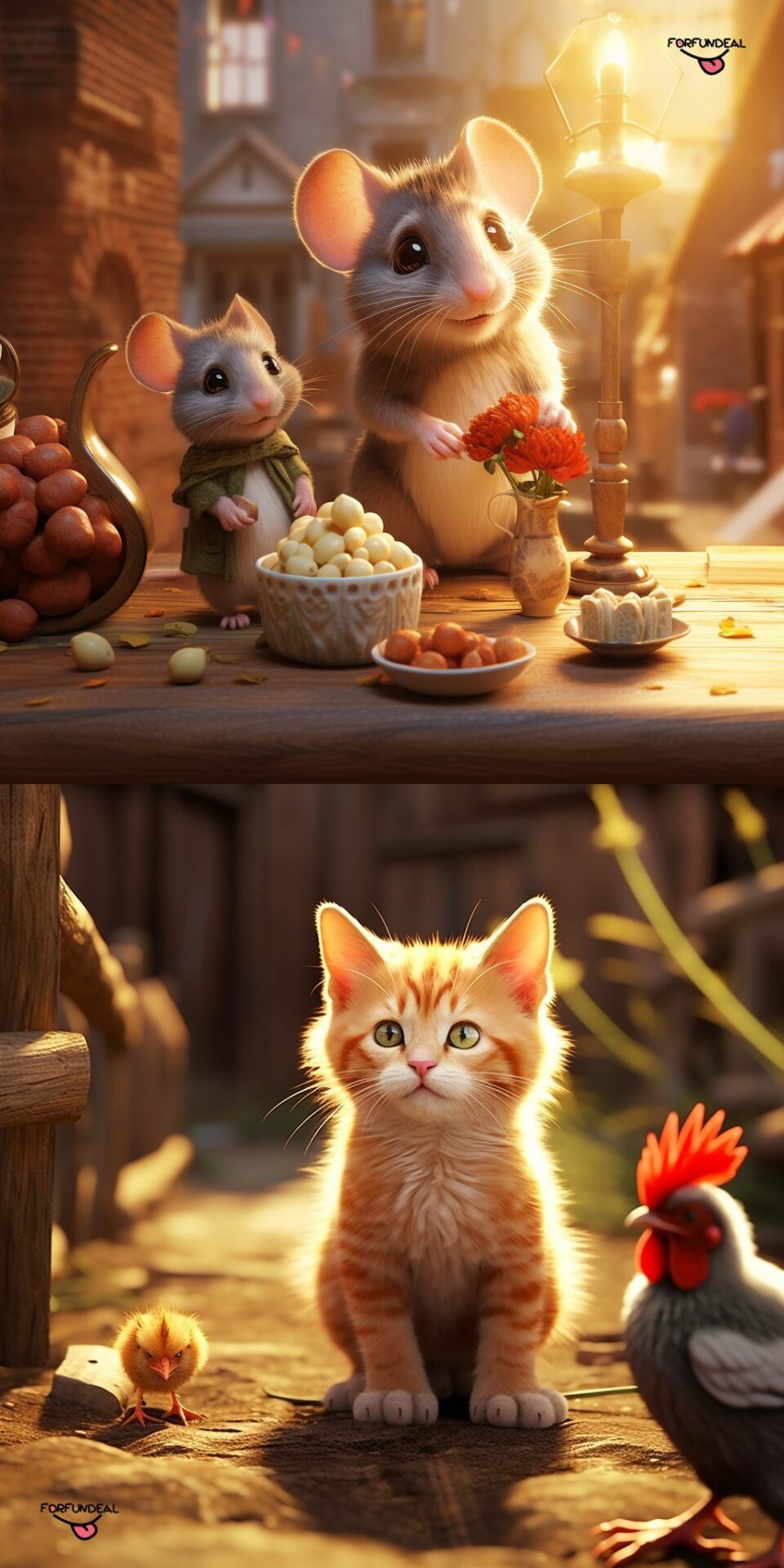
นิทานเรื่องนี้สอนให้รู้ว่า
“รูปลักษณ์ภายนอกสามารถหลอกลวงได้ และไม่ควรตัดสินผู้อื่นจากรูปลักษณ์ภายนอกเพียงอย่างเดียว”
- รูปลักษณ์ภายนอกสามารถหลอกลวงได้: เรื่องราวนี้แสดงให้เห็นถึงอันตรายของการตัดสินผู้อื่นจากรูปลักษณ์ภายนอกเพียงอย่างเดียว หนูตัวเล็กเกือบตกหลุมพรางของการคิดว่าสิ่งมีชีวิตที่ดูอ่อนโยน(แมว) ไม่มีอันตราย ในขณะที่สัตว์ประหลาดที่น่ากลัว(ไก่โรงนา) นั้นอันตราย อย่างไรก็ตาม ความจริงกลับกลายเป็นตรงกันข้าม เป็นการเตือนใจว่าอย่าตั้งสมมติฐานเกี่ยวกับผู้อื่นโดยไม่ทราบลักษณะหรือเจตนาที่แท้จริงของพวกเขา
- สัญชาตญาณที่เชื่อถือได้: ความกลัวโดยสัญชาตญาณของหนูตัวเล็กที่มีต่อสัตว์ประหลาดที่น่ากลัวของไก่ช่วยชีวิตมันไว้ สัญชาตญาณมีความสำคัญต่อการอยู่รอดและไม่ควรละเลย บางครั้งความรู้สึกสัญชาตญาณของเราสามารถเตือนเราถึงอันตรายที่อาจเกิดขึ้นแม้ว่าเราจะไม่เข้าใจสถานการณ์ทั้งหมดก็ตาม
- เรียนรู้จากประสบการณ์: การเผชิญหน้าของหนูกับแมวและไก่โรงนาเป็นประสบการณ์การเรียนรู้ที่มีค่า จากการเผชิญหน้าครั้งนี้ หนูน้อยได้รับความรู้เกี่ยวกับอันตรายในโลกภายนอก การเรียนรู้จากประสบการณ์ที่ผ่านมาช่วยให้เราตัดสินใจได้ดีขึ้นและหลีกเลี่ยงอันตรายที่อาจเกิดขึ้นในอนาคต
- ภูมิปัญญาของผู้อวุโสกว่า: คำแนะนำของแม่หนูที่มีต่อลูกชายเน้นย้ำถึงความสำคัญของการฟังและเรียนรู้จากผู้ที่มีประสบการณ์และสติปัญญามากกว่า คำแนะนำของแม่หนูช่วยป้องกันไม่ให้ลูกของเธอตกหลุมพรางมรณะ แสดงให้เห็นถึงความสำคัญของการขอคำปรึกษาจากผู้ที่มีความรู้และความเข้าใจ
- วางใจแต่ระมัดระวัง: แม้ว่าการเผชิญหน้ากับแมวของหนูจะเป็นอันตราย แต่ก็ไม่ได้หมายความว่าสัตว์ที่ดูเป็นมิตรทั้งหมดจะเป็นอันตราย เรื่องราวสอนให้เราระมัดระวังเมื่อเข้าใกล้สถานการณ์หรือบุคคลที่ไม่คุ้นเคย แต่อย่าให้ความกลัวขัดขวางไม่ให้เราสร้างความสัมพันธ์ใหม่ๆ
- การยอมรับธรรมชาติของผู้อื่น: เรื่องราวเน้นความสำคัญของการเข้าใจธรรมชาติที่แท้จริงของผู้อื่น สิ่งมีชีวิตบางตัวอาจดูใจดีและไม่มีอันตราย แต่ก็ยังอาจเป็นภัยคุกคามได้ ในทางกลับกัน สิ่งมีชีวิตที่ดูน่ากลัวอาจไม่เป็นอันตราย สิ่งสำคัญคือต้องประเมินผู้อื่นจากการกระทำและพฤติกรรมของพวกเขามากกว่าเพียงแค่รูปร่างหน้าตา
“Appearances can be deceptive, and it’s wise not to judge others solely based on how they look.”
- Appearances can be deceptive: The story illustrates the danger of judging others solely based on their outward appearance. The young Mouse almost fell into the trap of assuming that the gentle-looking creature (the Cat) was harmless, while the fearful monster (the Barnyard Cock) was dangerous. However, the truth turned out to be the opposite. It’s a reminder not to make assumptions about others without knowing their true nature or intentions.
- Trust instincts: The young Mouse’s instinctual fear of the fearful monster (Barnyard Cock) actually saved his life. Instincts can be crucial for survival and should not be ignored. Sometimes, our gut feelings can warn us of potential dangers even when we cannot fully understand the situation.
- Learn from experiences: The Mouse’s encounter with the Cat and the Barnyard Cock was a valuable learning experience. Through this encounter, the young Mouse gained knowledge about the dangers in the outside world. Learning from past experiences can help us make better decisions and avoid potential harm in the future.
- Wisdom of elders: The Mother Mouse’s advice to her son highlights the importance of listening to and learning from those who have more experience and wisdom. The elder Mouse’s guidance prevented her child from falling into a deadly trap, showing the significance of seeking counsel from those who have knowledge and understanding.
- Trust but be cautious: While the Mouse’s encounter with the Cat was dangerous, it doesn’t mean that all friendly-looking creatures are harmful. The story teaches us to be cautious when approaching unfamiliar situations or individuals but not to let fear prevent us from forming new relationships or connections.
- Acknowledging the nature of others: The story emphasizes the importance of understanding the true nature of others. Some beings might appear kind and harmless, but they could still be potential threats. On the other hand, creatures that seem intimidating might be harmless. It is essential to assess others based on their actions and behavior rather than just their appearance.
โดยสรุปแล้วนิทานเรื่องนี้ให้บทเรียนชีวิตอันมีค่าเกี่ยวกับการตัดสิน สัญชาตญาณ การเรียนรู้ สติปัญญา ความระมัดระวัง และการเข้าใจธรรมชาติที่แท้จริงของผู้อื่น บทเรียนเหล่านี้สามารถนำไปใช้ในแง่มุมต่างๆ ของชีวิต ชี้นำเราให้ตัดสินใจได้ดีขึ้นและนำทางผ่านโลกที่ซับซ้อนด้วยความตระหนักและความเห็นอกเห็นใจมากขึ้น

